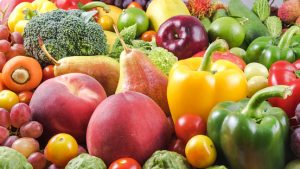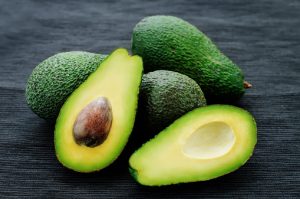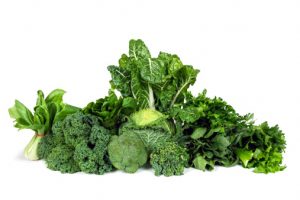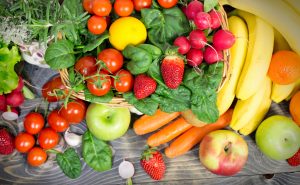 September is whole grains month and fruits & veggies month, so we present our top articles that discuss the impact that whole grains, fruits, and vegetables have on heart disease, stroke, weight loss, cholesterol, glaucoma, and breast cancer. As the saying goes, “you are what you eat.” It’s important that we eat nutritious foods to maintain good health and avoid risks and complications associated with poor eating habits.
September is whole grains month and fruits & veggies month, so we present our top articles that discuss the impact that whole grains, fruits, and vegetables have on heart disease, stroke, weight loss, cholesterol, glaucoma, and breast cancer. As the saying goes, “you are what you eat.” It’s important that we eat nutritious foods to maintain good health and avoid risks and complications associated with poor eating habits.
Whole grains, fruits, and vegetables are essential for a healthy diet, and there are numerous studies that outline their beneficial impact for specific ailments – as well as overall health. The articles below discuss some of these benefits, and we hope that you can start incorporating more whole grains, fruits, and vegetables into your diet for improved health and longevity.
Heart disease and stroke mortality risk reduced by eating whole grain foods
Advertisement
When it comes to your heart health and reducing your risk of getting cardiovascular disease (CVD), it may be as easy as what you eat. In fact, new research suggests by incorporating whole grains into your diet, you’re highly benefiting your heart.
According to research by the Harvard School of Public Health – published in JAMA Internal Medicine – eating more whole grains just might reduce the number of deaths in the United States, especially those resulting from CVD.
Found in foods like whole-wheat flour, brown rice, cornmeal, bulgur and oats, whole grains are made up of three elements: The bran layers, germ and what’s called endosperm. While refined grains typically have the bran layers and germ removed, whole grains contain all three elements and are considered healthier, generally speaking. Continue reading…
Eating more fruits and vegetables helps in weight loss management
 Eating more fruits and non-starchy vegetables can better help you manage weight loss, as reported in a recent study. Of course, we know that fruits and vegetables are essential to a healthy diet and overall health, but you may not fully recognize the benefits they have on weight loss management.
Eating more fruits and non-starchy vegetables can better help you manage weight loss, as reported in a recent study. Of course, we know that fruits and vegetables are essential to a healthy diet and overall health, but you may not fully recognize the benefits they have on weight loss management.
Fruits and vegetables provide us with essential vitamins and nutrients to ward off illness and maintain a healthy weight. Eating fruits and vegetables is an easy way to achieve a healthy weight because they have minimal calories. To lose weight, you need to burn off more calories than you take in. Many people feel the only way to achieve this is by restricting the amount of food we eat, but this isn’t necessarily true. Because fruits and vegetables are low in calories, you can enjoy lots of them, and you can add them into your favorite dishes to feel full while still losing weight. Continue reading…
This superfruit can help lower cholesterol
 Though classified as a fruit, avocado isn’t a typical one, being high in fat rather than carbohydrates. But don’t let that deter you from enjoying it, as it can still offer heart health benefits, including lowering your cholesterol.
Though classified as a fruit, avocado isn’t a typical one, being high in fat rather than carbohydrates. But don’t let that deter you from enjoying it, as it can still offer heart health benefits, including lowering your cholesterol.
Avocado has risen in popularity and has truly become a dietary staple for many. The fruit’s versatility makes it an easy addition to any meal, be it a quick breakfast, a lovely side dish, or even a sneaky health kick to decadent desserts.
According to the Hass Avocado Board in California, avocado can work wonders for your heart, along with aiding in weight loss, too. Continue reading…
Risk of glaucoma reduced by eating green, leafy vegetables
 You may be able to lower your risk of glaucoma by consuming plenty of green, leafy vegetables, according to a new study. The study uncovered that consuming green, leafy vegetables may reduce the risk of glaucoma – a vision problem that can result in blindness – by 20 percent.
You may be able to lower your risk of glaucoma by consuming plenty of green, leafy vegetables, according to a new study. The study uncovered that consuming green, leafy vegetables may reduce the risk of glaucoma – a vision problem that can result in blindness – by 20 percent.
Study leader Jae Kang said, “We found those consuming the most green leafy vegetables had a 20 to 30 percent lower risk of glaucoma.”
The research team followed 64,000 participants between 1984 and 2012, and an additional 41,000 participants between 1986 and 2012. All participants were over the age of 40 and did not have glaucoma at the start of the study.
After a 25-year follow-up, 1,500 participants developed glaucoma, and the researchers looked over the consumption of green, leafy vegetables. Continue reading…
Breast cancer risk lowered with high fruit consumption in teens: Study
Advertisement
 A new study has found that teenagers who consume plenty of fruits have a reduced risk of breast cancer later on in life. On the other hand, women who drink more alcohol over the years, have a higher risk of breast cancer but may have a lower risk of heart disease.
A new study has found that teenagers who consume plenty of fruits have a reduced risk of breast cancer later on in life. On the other hand, women who drink more alcohol over the years, have a higher risk of breast cancer but may have a lower risk of heart disease.
Roughly three servings a day of fruits – including apples, bananas, and grapes – were associated with a 25 percent reduction of breast cancer by the middle age, compared to only half a serving per day.
Women who consumed more oranges and kale experienced even greater protection from breast cancer, but drinking fruit juices did not appear to have the same effect. Continue reading…
